Disclosure: This article contains affiliate links. We may earn a commission from purchases at no extra cost to you, which helps our travel content.
The Mediterranean breeze carries whispers of ancient stories as I stand on Alexandria's Corniche, watching fishermen cast their nets against a backdrop of modern high-rises and colonial architecture. This city, founded by Alexander the Great over two millennia ago, exists in fascinating layers – historically, culturally, and psychologically. As someone who studies the impact of cultural identity on mental wellbeing, Alexandria's blend of Greek, Egyptian, European, and Middle Eastern influences creates a uniquely therapeutic environment for the curious traveler willing to look beyond the standard attractions.
Embracing Alexandria's Coffee Culture Through Local Eyes
When I first arrived in Alexandria last fall, jet-lagged and disoriented, it was the ahwa (traditional coffee houses) that grounded me. Unlike Cairo's tourist-oriented establishments, Alexandria's coffee culture remains refreshingly authentic. My favorite discovery was El Raml Station's Trianon Café, where generations of Alexandrian intellectuals have debated politics and poetry since 1905.
Each morning, I'd settle into a worn wooden chair at Délices, a historic patisserie near Saad Zaghloul Square, watching locals debate the day's news over cups of ahwa mazboot (perfectly balanced coffee). The elderly waiter, Hamdi, eventually recognized me, greeting me with "Sabah el-kheir, Sakura-san" – a touching blend of Arabic greeting and Japanese honorific that perfectly encapsulated Alexandria's cosmopolitan spirit.
For the best experience, bring a pocket Arabic phrasebook – even basic phrases open doors to genuine connections. Unlike tourist areas where English suffices, in these local haunts, attempting Arabic earns you respect and often leads to fascinating conversations about the city's multicultural past.
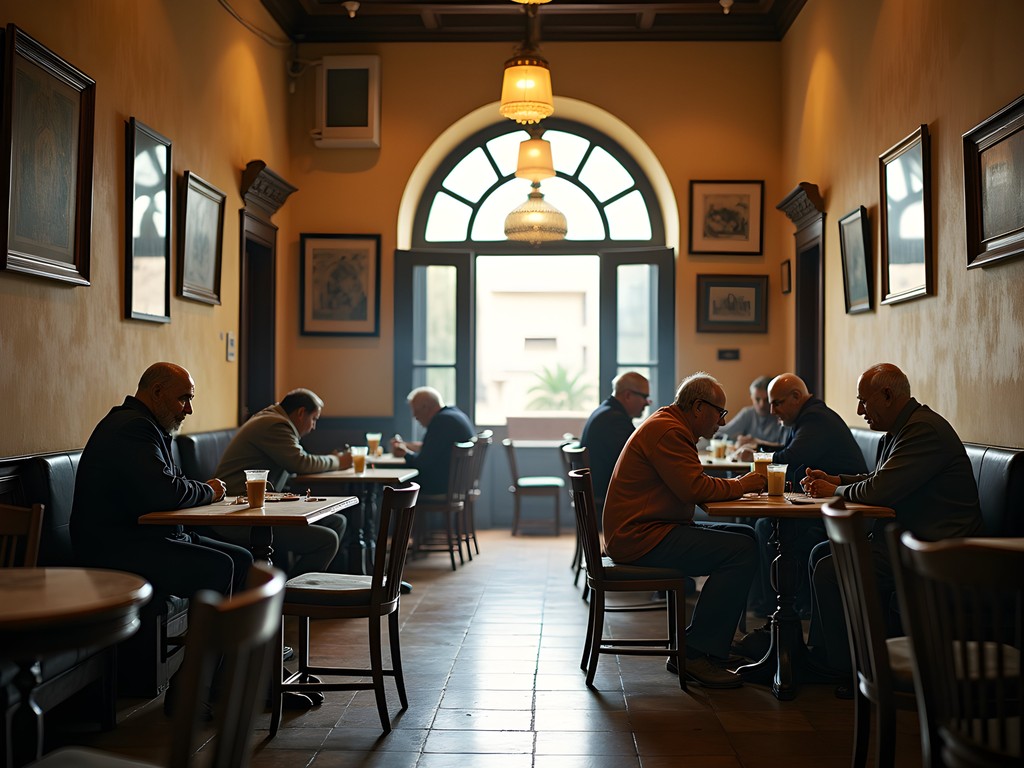
💡 Pro Tips
- Visit Délices early (7-9am) to experience authentic local morning routines
- Order 'ahwa mazboot' for perfectly balanced traditional coffee
- Bring small Egyptian pound notes for tipping - around 5-10 EGP is appropriate
Anfoushi: The Beating Heart of Authentic Alexandria
While most tourists flock to the new Bibliotheca Alexandrina (which is indeed magnificent), I found the soul of the city in Anfoushi, a working-class neighborhood where narrow alleyways reveal Alexandria's maritime heritage. Here, fishermen mend nets while their catch grills at simple streetside restaurants serving the freshest seafood you'll ever taste.
On my third day, I met Yasmine, a local artist documenting Alexandria's vanishing street art. She introduced me to the neighborhood's hidden murals – political statements, poetry fragments, and scenes of everyday life that tell the real story of modern Alexandria. These ephemeral works speak to the psychological resilience of communities navigating rapid change.
Yasmine recommended I wear my slip-resistant walking sandals for exploring the neighborhood's uneven cobblestone streets and slippery fish market areas. This advice proved invaluable as we wandered for hours through labyrinthine alleys that Google Maps hasn't properly documented.
The neighborhood comes alive after sunset. Families emerge to socialize, children play football in improvised street pitches, and the scent of dukkah (a local spice blend) and grilled fish fills the air. For an authentic experience, bring a compact water filter bottle to stay hydrated without accumulating plastic waste – Alexandria's relationship with its coastline is complex, and locals appreciate visitors who minimize environmental impact.
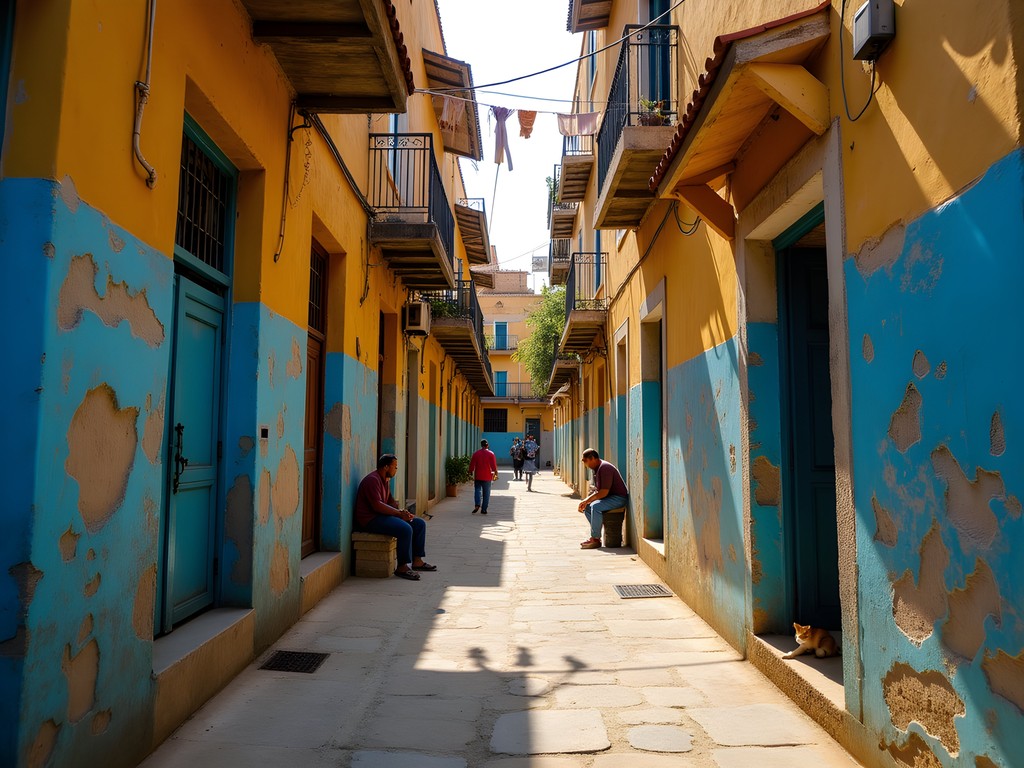
💡 Pro Tips
- Visit the fish market before 10am to see the morning's catch being auctioned
- Respect local customs by dressing modestly (shoulders and knees covered)
- Ask permission before photographing people - a smile and gesture toward your camera usually suffices
Coastal Sanctuaries: Alexandria's Therapeutic Shorelines
As someone who's documented whale sanctuaries across the globe, I was naturally drawn to Alexandria's relationship with its coastline. While the famous Corniche promenade offers postcard-perfect Mediterranean views, locals directed me to Montaza Gardens for a more contemplative experience.
The gardens surrounding the Montaza Palace provide a psychological respite from urban intensity. Early mornings here reveal a beautiful ritual – elderly Alexandrians practicing tai chi and yoga along the shore, a testament to the city's historical connections to Eastern philosophies and practices.
For a truly local experience, head to Maamoura Beach during weekday mornings. This stretch of coastline, largely overlooked by tourists, hosts informal gatherings of women who come to socialize while their children play. I was invited to join their circle after complimenting a woman's intricate crochet work. We spent hours conversing in my limited Arabic, supplemented by my Arabic-English translation device when needed.
The most profound coastal experience came at El-Max fishing village, often called 'Little Venice' for its waterways. Here, generations of fishermen navigate environmental challenges while maintaining traditional practices. The community faces significant ecological pressures, yet demonstrates remarkable resilience. As a mental health professional, I found their adaptation strategies fascinating – a living case study in community psychological resources.
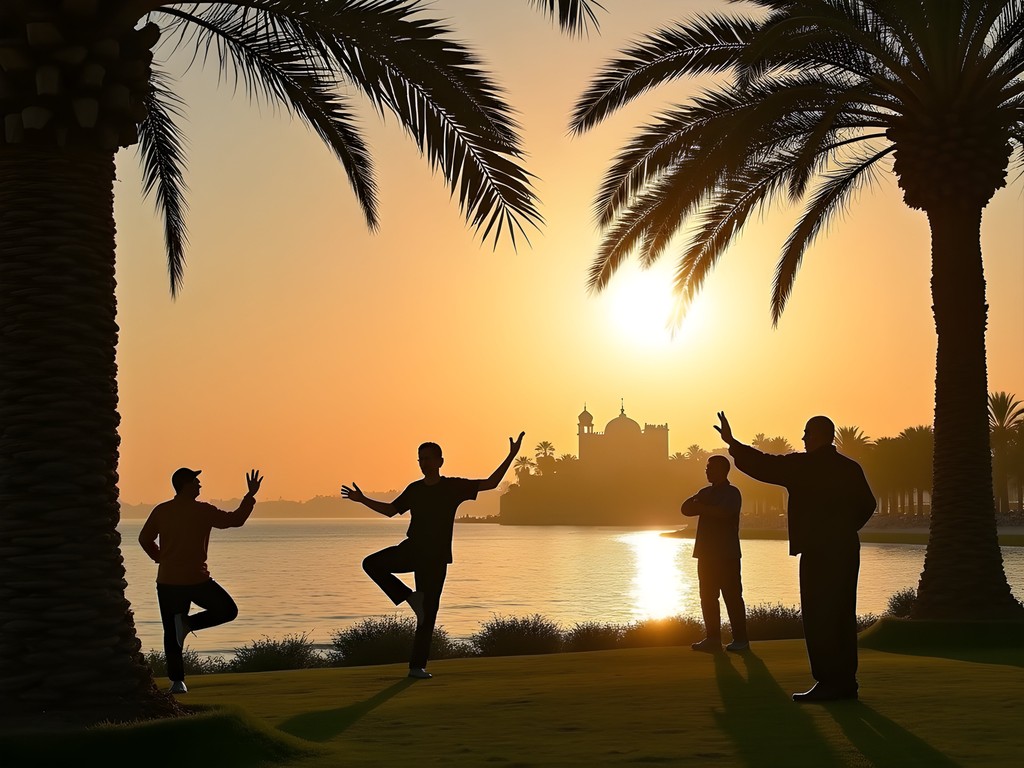
💡 Pro Tips
- Visit Montaza Gardens at sunrise (around 6am) to see locals practicing morning exercises
- Bring small gifts like fruit or sweets if invited to join local gatherings
- Consider bringing a reusable bag to collect plastic from beaches - a gesture appreciated by environmentally-conscious locals
Language Bridges: Connecting Through Alexandria's Linguistic Heritage
As someone who documents disappearing coastal dialects, Alexandria offered a linguistic treasure trove. The city's unique dialect blends Arabic with Italian, Greek, French, and Turkish influences – a living artifact of its cosmopolitan past. Local language exchanges happen informally at El Qahwa El Borsa, a downtown café where university students gather to practice languages with visitors.
I spent several evenings here with my language learning notebook, exchanging Japanese phrases for Alexandrian Arabic expressions. These conversations revealed fascinating psychological insights – younger Alexandrians often expressed nostalgia for a cosmopolitan past they never personally experienced, while older residents shared stories of the city's multicultural golden age.
For a deeper linguistic immersion, I visited the Greek Club in Ramleh district, where Alexandria's dwindling Greek community maintains their heritage through monthly cultural events. Though not advertised to tourists, visitors showing genuine interest in cultural preservation are warmly welcomed. The elderly members switched effortlessly between Greek, Arabic, French, and English – living embodiments of Alexandria's layered identity.
My most meaningful language exchange occurred at Café Pastroudis, where I met Nadia, an 80-year-old former teacher who shared stories of Alexandria's Jewish community before their exodus in the 1950s. She taught me phrases in Ladino (Judeo-Spanish) that once echoed through the city's streets. These conversations weren't just linguistically enriching – they provided therapeutic value for elders whose multicultural memories often go unheard.
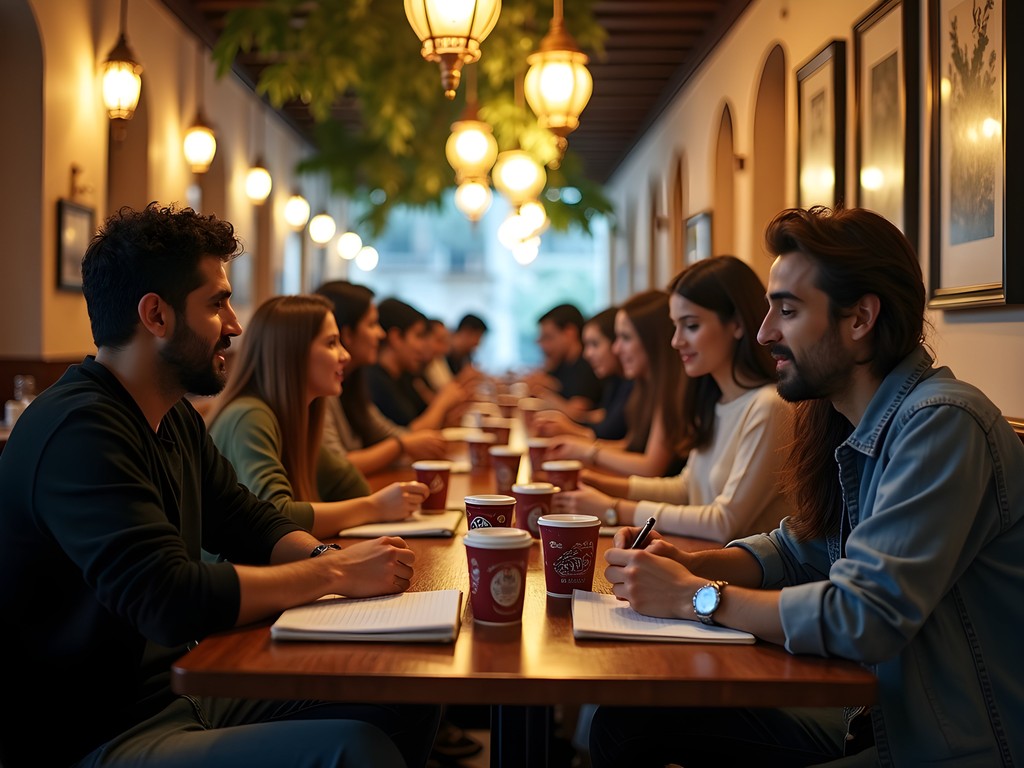
💡 Pro Tips
- Learn basic Egyptian Arabic greetings - 'sabah el-kheir' (good morning) and 'shokran' (thank you) go a long way
- Visit El Qahwa El Borsa on Tuesday evenings when language exchange groups gather informally
- Bring photos from your home country as conversation starters with locals curious about cultural differences
Culinary Therapy: Healing Through Alexandria's Local Food Traditions
Alexandria's food scene transcends mere sustenance – it's a form of cultural psychotherapy, connecting residents to their diverse heritage. While tourists crowd seafood restaurants on the Corniche, I followed the advice of my Airbnb host to Mohamed Ahmed's modest eatery in Ramleh Station, where his ful medames (stewed fava beans) has remained unchanged for decades.
The ritual of breakfast here – watching elderly men reading newspapers while dipping baladi bread into bowls of ful – provides a window into Alexandria's daily rhythms. I began carrying my pocket food dictionary to identify unfamiliar dishes, which often prompted friendly conversations with curious locals.
For an immersive experience, I joined a cooking class at Alexandria's Greek Cultural Center, where I learned to prepare psari plaki (baked fish) using techniques that blend Greek traditions with local Egyptian ingredients. These cross-cultural culinary practices reflect Alexandria's historical position as a Mediterranean melting pot.
My most authentic food experience came through Nour, a university student who invited me to her family's weekly gathering. Her grandmother prepared mahshi (stuffed vegetables) using recipes passed down through generations. As we rolled grape leaves together, three generations of women shared stories that revealed how food traditions have preserved family bonds through political upheavals and social changes. The spice collection kit I brought as a hostess gift sparked a fascinating conversation about how similar spices appear in both Japanese and Egyptian cooking.
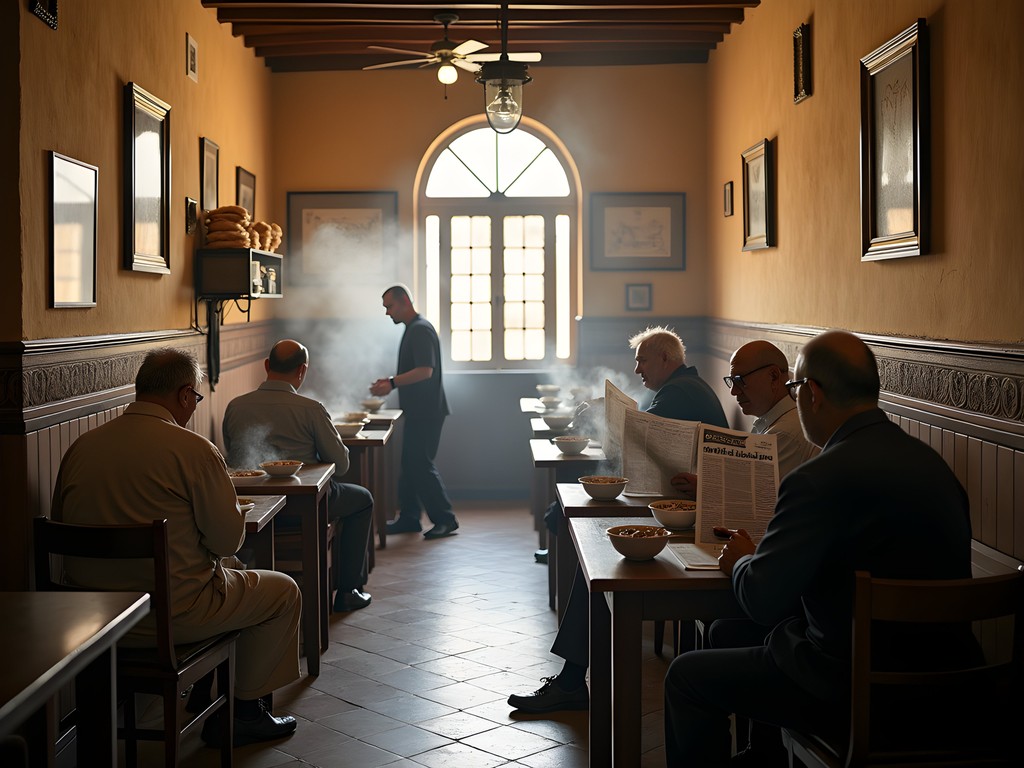
💡 Pro Tips
- Visit Mohamed Ahmed for breakfast before 9am to experience authentic local morning routines
- Ask for 'aklet el-yom' (dish of the day) at local restaurants for the freshest options
- Bring small denominations of Egyptian pounds as many local eateries don't accept cards
Final Thoughts
As my week in Alexandria drew to a close, I found myself sitting on the seawall near Fort Qaitbey, watching fishing boats return with their evening catch. A young man practicing English struck up a conversation, asking why I chose Alexandria over more popular Egyptian destinations. 'Here,' I explained, 'the city itself is the attraction – not individual monuments.'
Alexandria rewards the patient traveler who approaches with curiosity rather than a checklist. Its treasures aren't always visible at first glance but reveal themselves through human connections and everyday rituals. As a mental health professional, I've observed how this city's layered identity offers a unique form of cultural healing – acknowledging loss while celebrating resilience and continuity.
Whether you're sipping morning coffee alongside locals, learning phrases in Alexandria's unique dialect, or sharing meals with newfound friends, this Mediterranean gem offers something increasingly rare in our globalized world: authenticity. I came seeking connections to disappearing coastal cultures but left with something more valuable – a reminder that the most meaningful travel experiences often happen in the spaces between attractions, in the ordinary moments that reveal extraordinary human stories.
✨ Key Takeaways
- Alexandria's authentic experiences come through human connections rather than tourist attractions
- Morning rituals at local coffee houses and eateries provide the best window into real Alexandrian life
- The city's multicultural history is preserved through language, food, and community gatherings
- Respectful engagement with locals opens doors to experiences no guidebook can provide
📋 Practical Information
Best Time to Visit
September to November (fall)
Budget Estimate
$30-50 per day excluding accommodation
Recommended Duration
5-7 days
Difficulty Level
Moderate
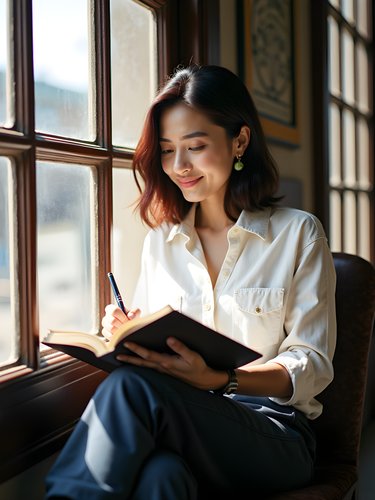
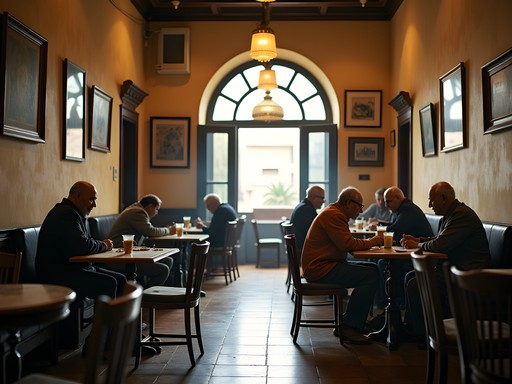
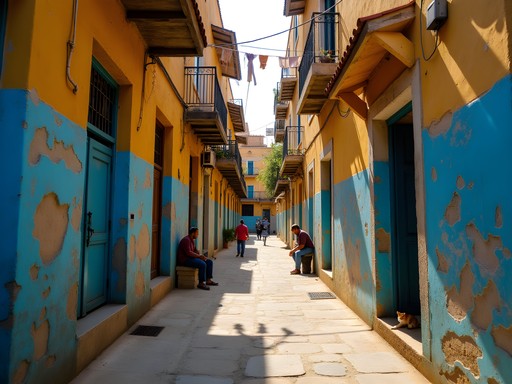
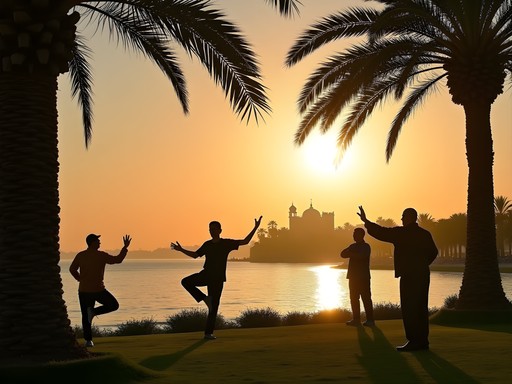
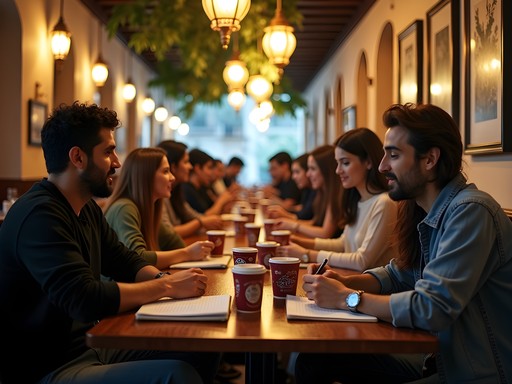
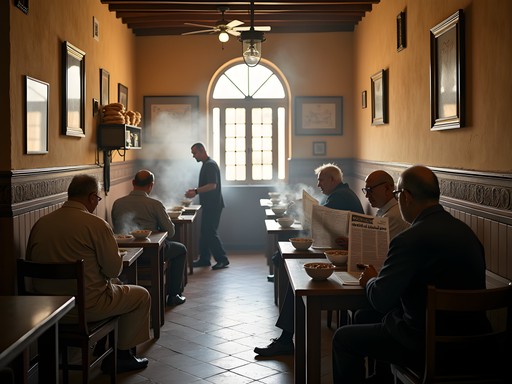


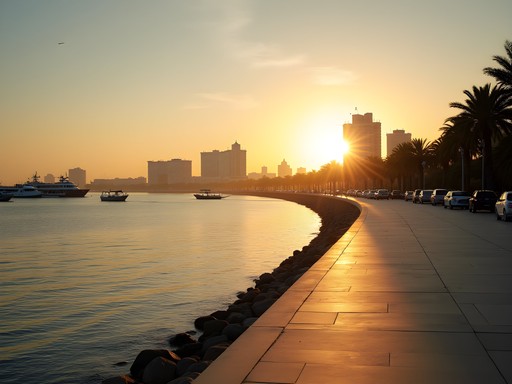

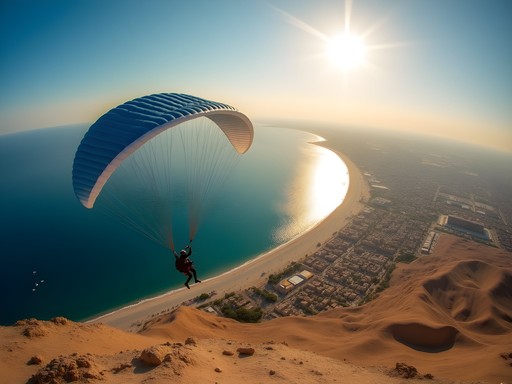
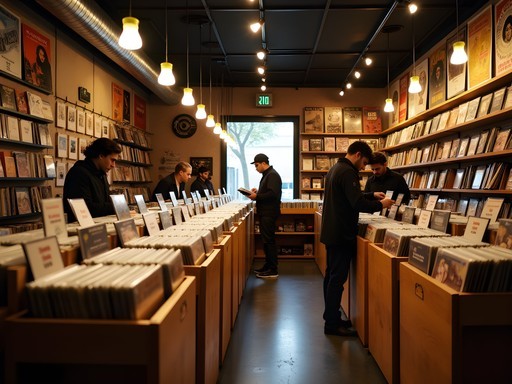
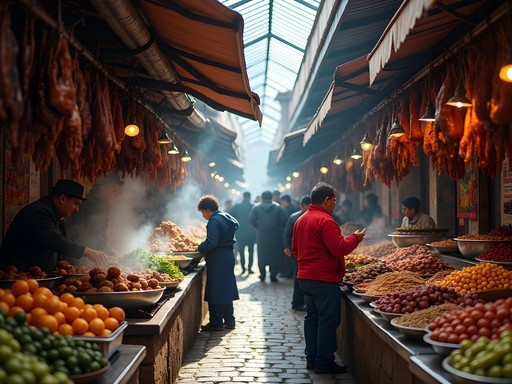
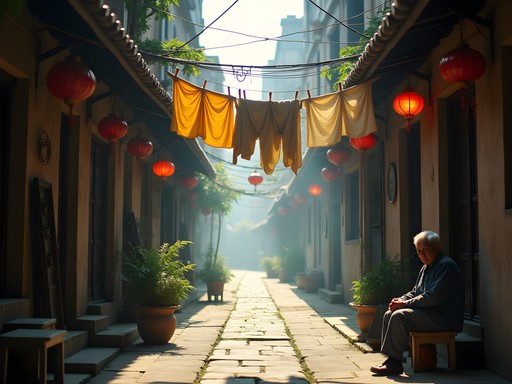
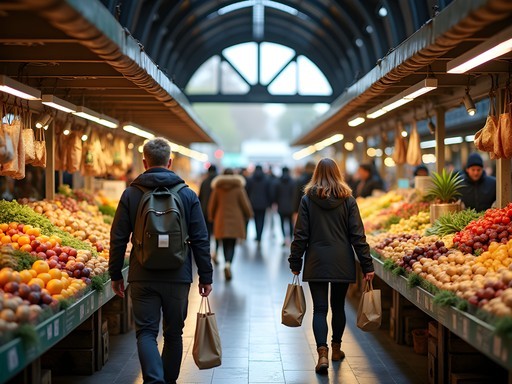
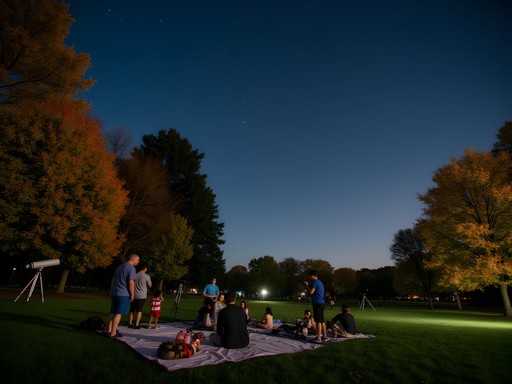
Comments
coffee_nomad
I tried all the coffee spots you mentioned and have to add Café Délices to the list! It's a bit fancy but has this beautiful terrace overlooking the Eastern Harbor. The owner told me they still use beans from a supplier that's been around since the 1940s. Their Turkish coffee with cardamom was incredible.
Sakura Lawson
How did I miss that one?! Adding it to my list for next time - sounds perfect!
marina_travels
How safe is it for solo female travelers? Planning a trip in August.
Haley Hamilton
I traveled solo and felt quite safe in Alexandria! It's more relaxed than Cairo. Just dress modestly, be aware of your surroundings like anywhere, and you'll be fine. The Corniche is lively even in evenings and locals are incredibly helpful.
marina_travels
Thanks Haley! That's reassuring to hear.
traveling_teacher
Those coastal photos are stunning! Can't wait to see it myself.
ahmed_local
As an Alexandrian, I'm impressed by how well you captured our city! One more tip: visit El Montazah Gardens on weekday mornings when locals exercise there. The royal gardens are peaceful before the crowds arrive.
Sakura Lawson
Thank you Ahmed! Coming from a local, that means a lot. I loved El Montazah but went midday - will definitely try your morning tip next time!
Haley Hamilton
Sakura, your post transported me back to my time in Alexandria last year! I spent three weeks there and fell in love with Anfoushi too. There's this tiny seafood place down a narrow alley where the owner insisted I join his family for dinner. The hospitality was incredible. One hidden gem I discovered was Bibliotheca Alexandrina's rooftop at sunset - hardly any tourists, just locals enjoying the view. And the spice markets near El-Attarine Mosque were a sensory overload in the best possible way. I traveled with my pocket translator which was a lifesaver for communicating with fishermen and shop owners who didn't speak English. Those interactions made my trip so much more meaningful than just seeing the monuments.
wanderlust_emma
That rooftop tip is gold! Adding it to my itinerary for sure.
Haley Hamilton
It's magical! Go about an hour before sunset and bring a small picnic. The light over the Mediterranean is something else.
exploreace
This is exactly what I needed! Heading to Alexandria next month and was looking for non-touristy spots. Definitely checking out that coffee shop in Anfoushi you mentioned!
Sakura Lawson
So glad you found it helpful! Make sure to try the cardamom coffee at Qahwet El-Fishawi - it's a local favorite. Let me know how your trip goes!
exploreace
Will do! Any tips on local transportation? Should I brave the microbuses?
Sakura Lawson
The microbuses are an adventure! They're cheap and go everywhere, but can be confusing. I'd recommend using the blue trams for a more relaxed experience - they're historic and run along the Corniche. Perfect for sightseeing!
happyexplorer
Love how you captured the coffee culture! Those tiny cups of Egyptian coffee are so strong but so good!
happyexplorer
Yes! The cardamom version was my favorite. Perfect with those little sesame cookies they serve.
photovibes
Right? I still dream about that coffee. Did you try it with cardamom?
wanderlustchamp
Great post! I'm heading to Alexandria next month and I'm curious about the coastal areas you mentioned. Which beach would you recommend for someone who wants a quiet spot to read and swim away from crowds? Also, did you need any special gear for those rocky shorelines? I'm packing light but wondering if I should bring my water shoes for exploring the coast.
Sakura Lawson
For a quieter beach experience, I'd recommend heading to Montaza Beach in the early morning or the small coves past Maamoura. And yes, water shoes are definitely helpful for the rocky areas! The Mediterranean can be surprisingly chilly even in warmer months, so a light layer for after swimming is good too.
wanderlustchamp
Perfect, thanks for the tips! Will definitely check out Montaza Beach.
Jean Wells
Sakura, your piece on Alexandria brought back so many memories from my visit last year! I particularly appreciated your insights on Anfoushi - it truly is the beating heart of authentic Alexandria. I spent three days wandering those narrow streets, photographing the colorful buildings and engaging with local artisans. One thing I'd add: try the street food near the fish market in early morning. The freshly fried seafood with tahini is extraordinary, and you'll be surrounded by locals rather than tourists. Did you happen to visit any of the small bookshops near the university? They have fascinating collections of Arabic literature with English translations.
happyexplorer
Jean, how was safety in Anfoushi for solo travelers? Planning to go in November.
Jean Wells
I felt quite safe as a solo female traveler, but I did dress conservatively and was respectful of local customs. Daytime is absolutely fine, and evenings were okay in busy areas. Just use the same common sense you would in any city. The people were incredibly hospitable!
happyexplorer
Thanks! That's really helpful.
photovibes
Those coffee shops in Anfoushi look amazing! Definitely adding Alexandria to my bucket list.
Venture X
Premium card with 2X miles, $300 travel credit, Priority Pass